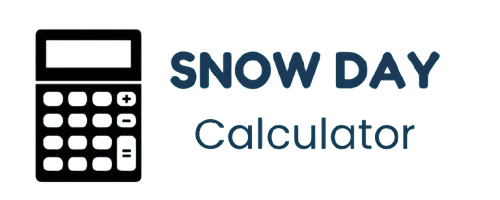Snow Day Predictor
Snow Day Predictor calculates the chance of school being closed due to weather.
Snow Day Probability
Wondering if you’ll have a snow day tomorrow? You’re not alone. Whether you’re a student, parent, or teacher, predicting a snow day can feel like guessing the winning lottery numbers. But with the right tools and information, you can make an educated guess—and that’s where a snow day predictor comes in.
A snow day predictor is more than just a fun tool; it’s a way to plan your day, keep your family safe, and maybe even enjoy an unexpected day off. In this guide, we’ll cover everything you need to know about snow day predictors, school closing predictions, and how to stay informed when winter weather strikes.
What Is a Snow Day Predictor?
A snow day predictor is a tool—often a website or app—that estimates your chance of having a snow day. It uses weather forecasts, local school policies, and sometimes even live road conditions to make its prediction. The goal? To help you answer the big question: “Will school be closed tomorrow?”
Snow day predictors are especially popular in areas with harsh winters, like Ontario, Michigan, and the northeastern United States. They’re used by millions of students, parents, and teachers every year.
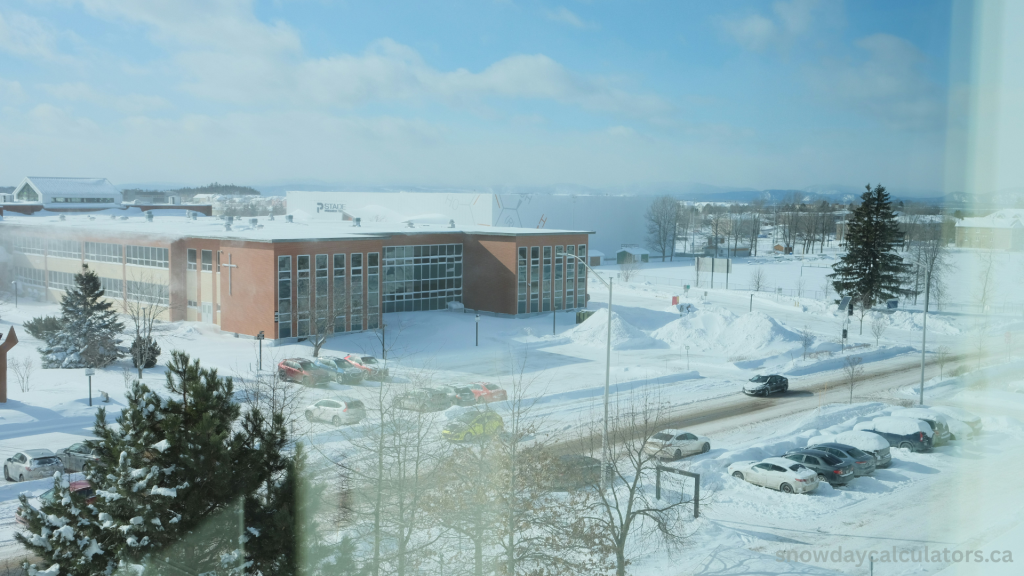
How Does a Snow Day Predictor Work?
At its core, a snow day predictor analyzes weather data. It looks at:
- Snowfall Amount: How much snow is expected?
- Temperature: Is it too cold for students to wait outside?
- Wind Speed: Are blizzard conditions possible?
- Road Conditions: Are roads safe for buses and cars?
- Local School Policies: Does your school close easily, or does it take a lot of snow?
Some predictors use advanced algorithms, while others rely on simple rules of thumb. The best ones update frequently and use local data for the most accurate results.
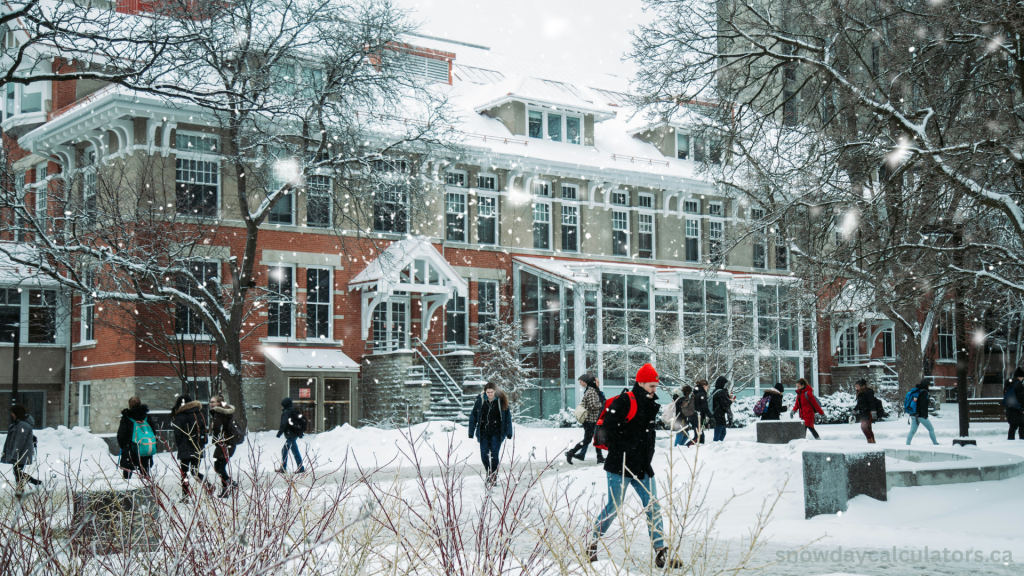
Why Use a Snow Day Predictor?
Here are a few reasons why a snow day predictor is worth using:
- Plan Your Day: Know in advance if you need to arrange childcare or work from home.
- Stay Safe: Avoid unnecessary travel in bad weather.
- Reduce Stress: No more last-minute scrambles to check the news or your school’s website.
- Have Fun: If you get a snow day, you can plan fun activities instead of rushing out the door.
Types of Snow Day Predictors
There are several types of snow day predictors, each with its own strengths:
- Local Predictors: Made for your specific area, using local weather and school rules.
- National Predictors: Cover the whole country, but are less accurate for individual schools.
- School-Specific Predictors: Some schools or districts have their own official tools.
- App-Based Predictors: Quick and easy to use on your phone, with alerts and notifications.
How Accurate Are Snow Day Predictors?
Snow day predictors are usually pretty good, but they’re not perfect. Weather can change quickly, and school decisions often depend on factors that aren’t in the forecast—like the condition of local roads or the availability of snowplows.
In my experience, local predictors are the most accurate. They know your area’s weather patterns and school policies. National predictors are fun for a quick guess, but always check your school’s website for the final word.
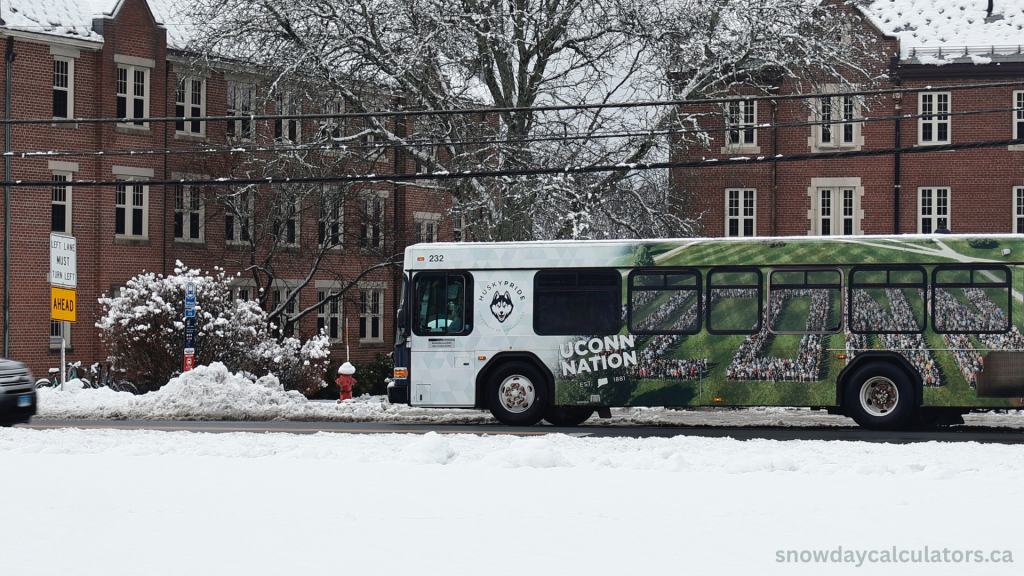
Snow Day Predictor vs. School Closing Predictions
A snow day predictor is a tool that guesses if school will be closed. School closing predictions are the official announcements from your school or district. Sometimes, the predictor and the official announcement match up. Other times, they don’t. That’s why it’s important to check both.
What Does “Chance of Snow Day” Actually Mean?
When a snow day predictor gives you a “chance of snow day,” it’s usually a percentage. For example, 80% means there’s a high likelihood school will be closed. 10% means it’s unlikely. These numbers are based on weather forecasts and local rules.
Snow Day Forecast and Snow Day Calculator
A snow day forecast is a weather report focused on school closures. It tells you if snow, ice, or wind might cause a snow day. A snow day calculator is a tool that lets you input your location and expected weather to get a percentage chance of a snow day.
Some calculators are simple, while others are more advanced. The best ones use local data and update frequently.
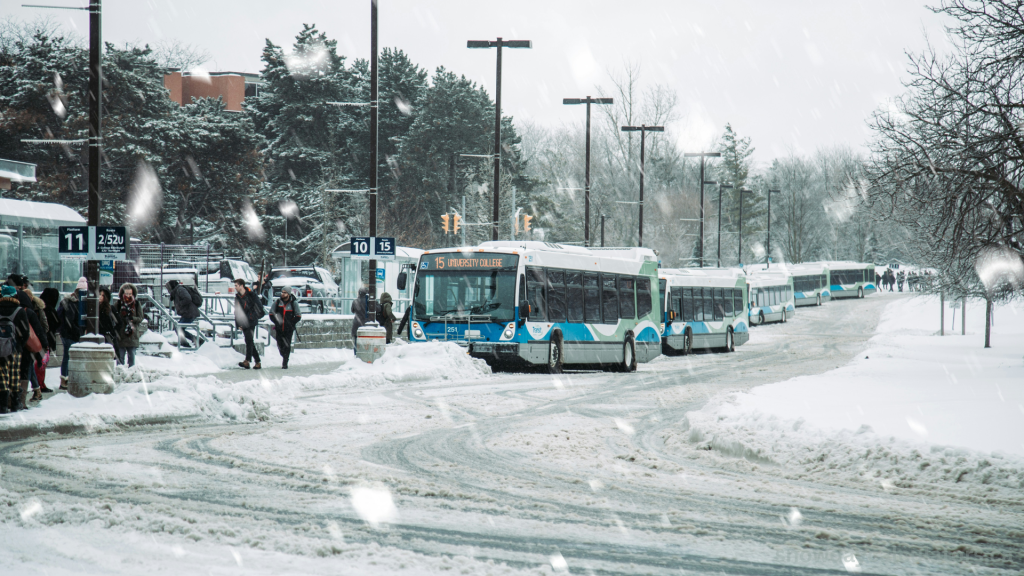
What Are the Chances of a Snow Day Tomorrow?
This is the question everyone wants answered. To find out, use a snow day predictor or calculator. Just enter your location and see what it says. Some tools update throughout the day, so check back often for the latest info.
Snow Predictor vs. Snow Day Predictor
A snow predictor guesses if it will snow. A snow day predictor goes further—it guesses if school will close because of snow. Both are helpful, but for students, the snow day predictor is the real prize.
Snow Day Calc and Snow Day Calculator
A snow day calc (short for calculator) is a tool that figures out your snow day chance. You put in details like your town and expected snow. The calculator does the math and gives you a percentage. Some calculators are free and easy to use.
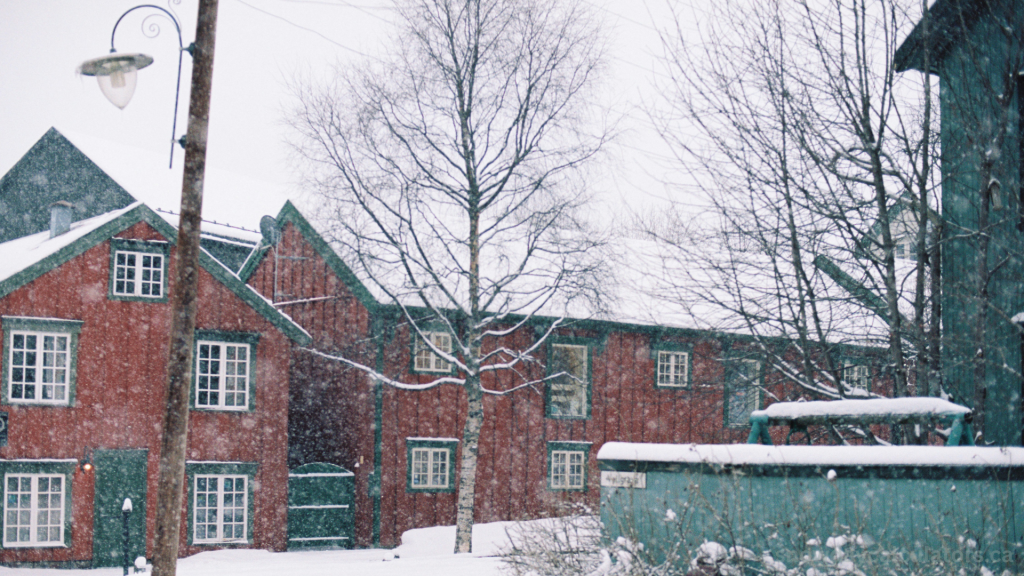
Chances of a Snow Day
Your chances of a snow day depend on where you live. Big cities with lots of snowplows might not close as often. Small towns with fewer resources might close more easily. Always check your local predictor for the most accurate guess.
Snow Day Checker
A snow day checker is a quick tool that tells you if school is closed today. Just type in your school or district, and it gives you an instant answer. It’s perfect for those rushed mornings when you’re not sure what’s going on.
Is It a Snow Day Today?
This is the million-dollar question every student asks. To find out, use a snow day checker or your school’s website. Some towns also send alerts by text or email. Always double-check in case plans change at the last minute.
Snow Day Predictor Ontario
If you live in Ontario, you can use a snow day predictor made just for your area. These tools know Ontario’s weather and school policies. They give you a better guess than a general predictor.
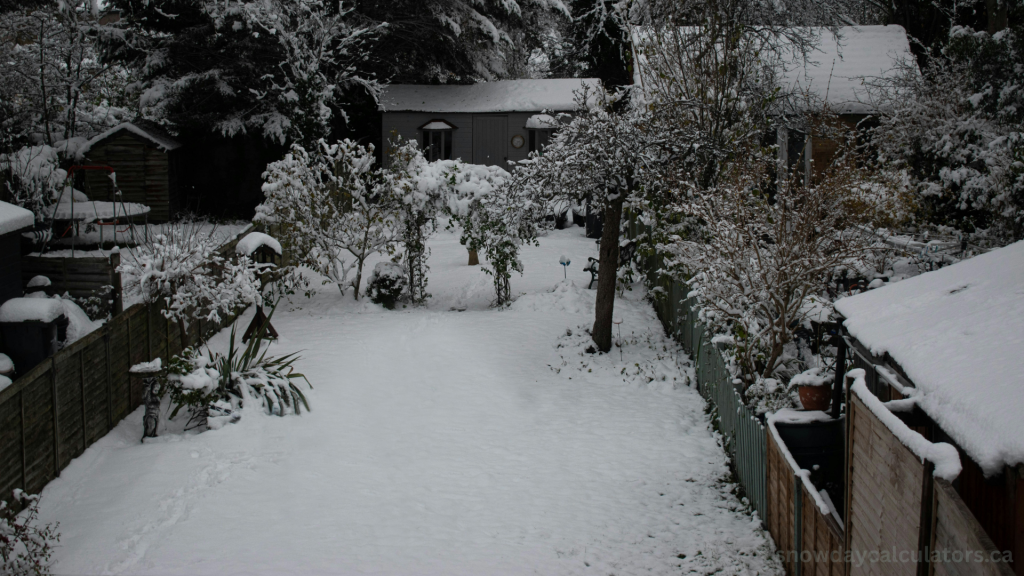
Is It Going to Be a Snow Day Tomorrow?
Wondering about tomorrow? Use a snow day predictor and check the forecast. Remember, weather can change fast. It’s always good to have a backup plan, just in case.
Will It Be a Snow Day Tomorrow?
Many predictors let you see the chance for tomorrow. Some even show hour-by-hour updates. If the chance is high, get your snow gear ready. If it’s low, don’t forget to set your alarm.
Storm Day Predictor
A storm day predictor is like a snow day predictor but for any bad weather. It guesses if school will close because of storms, heavy rain, or even extreme cold. It’s handy for places that don’t get much snow but still have weather problems.
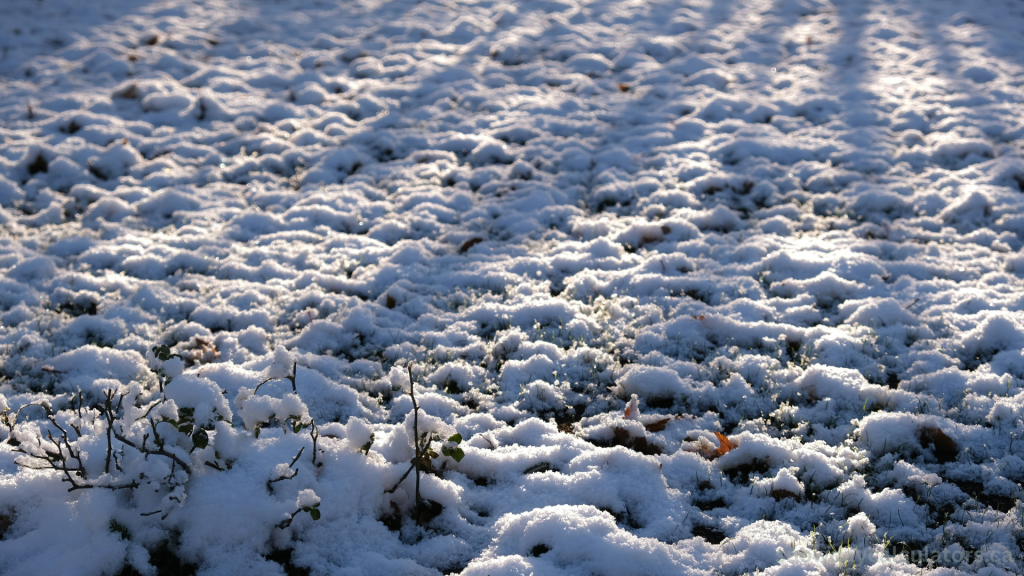
Snow Day Chance
Your snow day chance is a number that shows how likely school is to close. The higher the number, the better your odds. Some predictors show this as a percentage, others as a color (like green for low, red for high).
Is There Going to Be a Snow Day Tomorrow?
This question is on every student’s mind. To find out, check a snow day predictor or your local news. Sometimes, the final decision isn’t made until early in the morning—so keep an eye out for updates!
Is There a Snow Day Tomorrow?
Same as above—use a predictor or your school’s website. Some places announce the night before, others wait until the morning. Always check before you leave for school.
Snow Day Prediction
A snow day prediction is a guess about whether school will be closed. It’s based on weather forecasts and local rules. Some predictors are more accurate than others, so it’s good to check a few sources.
Snow Day Tracker
A snow day tracker is a handy tool that shows you where school closures are happening right now. It works like a live map, updating you on which towns or districts have declared a snow day. Not only can you see if your own school is closed, but you can also check if your friends in other areas are off too.
This makes it easy to plan your day and keep up with what’s happening around you. Some trackers even send alerts or let you filter by region or school district, so you get the most accurate information possible.
Snow Day Predictor Accuweather
Accuweather makes a snow day predictor that uses their own weather data. It’s easy to use and gives you a percentage chance. Just type in your location and see what it says. You can also get alerts if a snow day is likely in your area. This means you’ll always be updated and ready, just in case school is canceled.
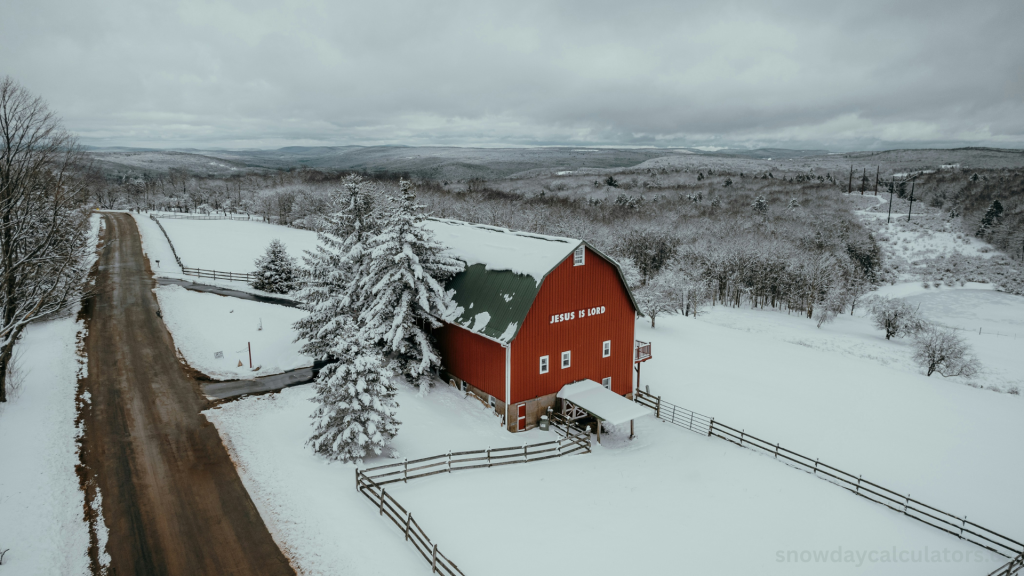
Chances of Snow Day
The chances of a snow day depend on the weather and your school’s rules. Heavy snow, icy roads, or extreme cold can all cause a snow day. Some schools are stricter than others.
Bus Cancellation Predictor
A bus cancellation predictor guesses if school buses will be canceled. Even if school is open, buses might not run if roads are bad. This is important for students who ride the bus.
School Closing Predictions for Tomorrow
Want to know about tomorrow’s school closing predictions? Check your local predictor or news station. They usually update throughout the day and night as the weather changes.
School Snow Day Predictor
A school snow day predictor is a tool made just for your school or district. It uses local weather and school rules to give you the best guess. Some schools even have their own official predictor.
Is It a Snow Day Tomorrow?
Again, use a predictor or your school’s website. Some places make the call early, others wait until morning. It’s always good to check before you go to bed and when you wake up.
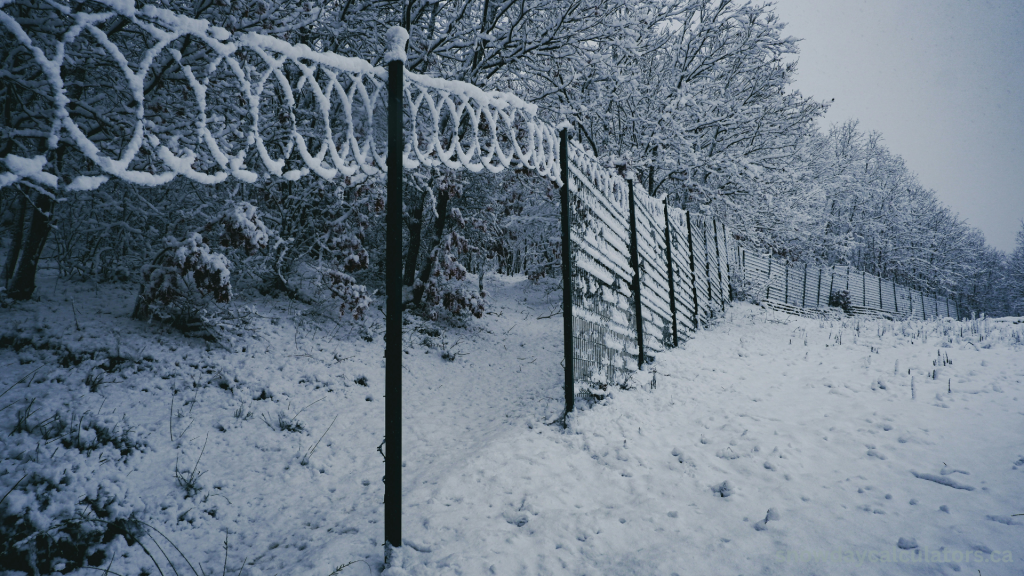
Snow Day Predictor Barrie
If you live in Barrie, Ontario, use a snow day predictor made for Barrie. These tools know the local weather and school policies. They give you a more accurate guess than a general predictor.
Is There Gonna Be a Snow Day Tomorrow?
This is a casual way to ask if tomorrow is a snow day. Use a snow day predictor or your school’s website to find out. Some places announce the night before, others wait until morning.
Chances of a Snow Day Tomorrow
Your chances of a snow day tomorrow depend on the weather forecast. Heavy snow, ice, or extreme cold can all cause a snow day. Check your local predictor for the latest guess.
What Are the Chances of School Getting Canceled Tomorrow?
This is a common question for students and parents. Use a snow day predictor or your school’s website to find out. Some places update their predictions throughout the night.
Will Tomorrow Be a Snow Day?
To find out if tomorrow is a snow day, check a predictor or your school’s website. Some places make the call early, others wait until morning. Always check before you leave for school.
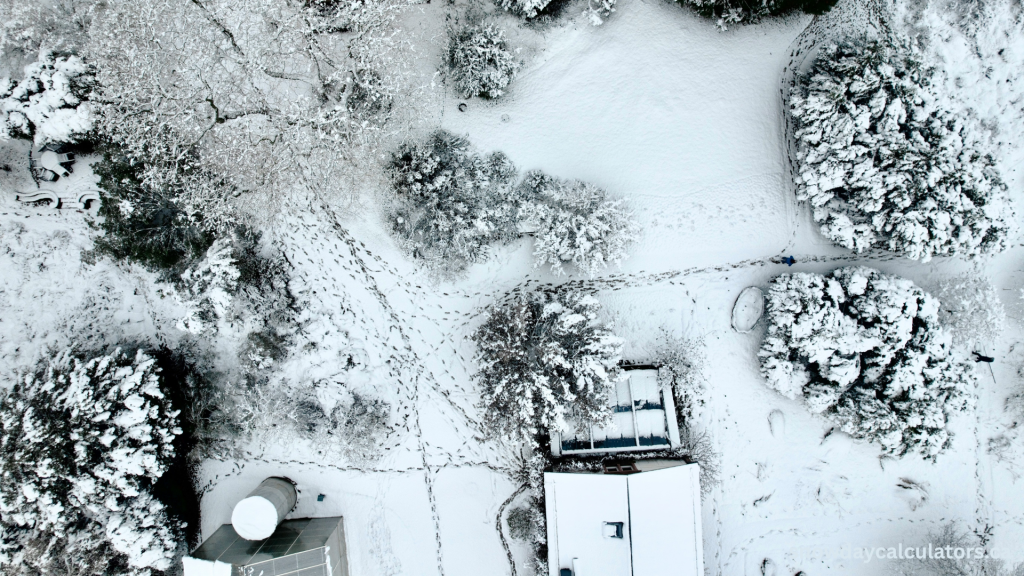
Snow Day Chance Calculator
A snow day chance calculator is a tool that figures out your snow day odds. You put in your location and the expected weather. The calculator gives you a percentage or color code.
What Is the Chance of a Snow Day Tomorrow?
This is the big question. Use a snow day predictor or your school’s website to find out. The chance is usually a percentage or a color code. The higher the number, the better your odds.
Snow Day Prediction Calculator
A snow day prediction calculator is a tool that uses weather data to guess if there will be a snow day. You put in your location and the forecast, and it gives you a percentage.
Chance of No School Tomorrow
The chance of no school tomorrow is the same as the chance of a snow day. It’s a percentage or number that shows how likely it is that school will be closed. Check your local predictor for the latest info.
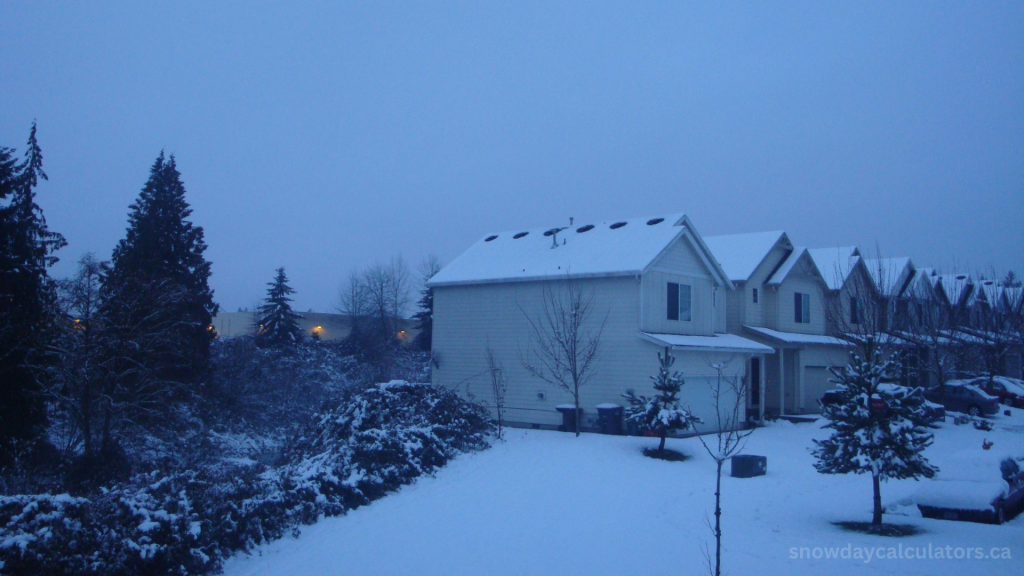
No School Predictor
A no school predictor is a tool that guesses if school will be closed. It’s just another name for a snow day predictor. Use it to plan your day and know if you need to set your alarm.
Snow Day Weather
Snow day weather is any weather that could cause school to close. This includes heavy snow, ice, extreme cold, or even strong winds. Always check the forecast before making plans.
Snow Days Tomorrow
If you want to know about snow days tomorrow, check a snow day predictor or your school’s website. Some places announce the night before, others wait until morning. Always check before you leave for school.
School Cancelation Predictor
A school cancelation predictor is the same as a school closure predictor. It guesses if school will be canceled because of bad weather. Use it to plan your day and know if you need to set your alarm.
Snow Day Timmins
If you live in Timmins, use a snow day predictor made for Timmins. These tools know the local weather and school policies. They give you a more accurate guess than a general predictor.
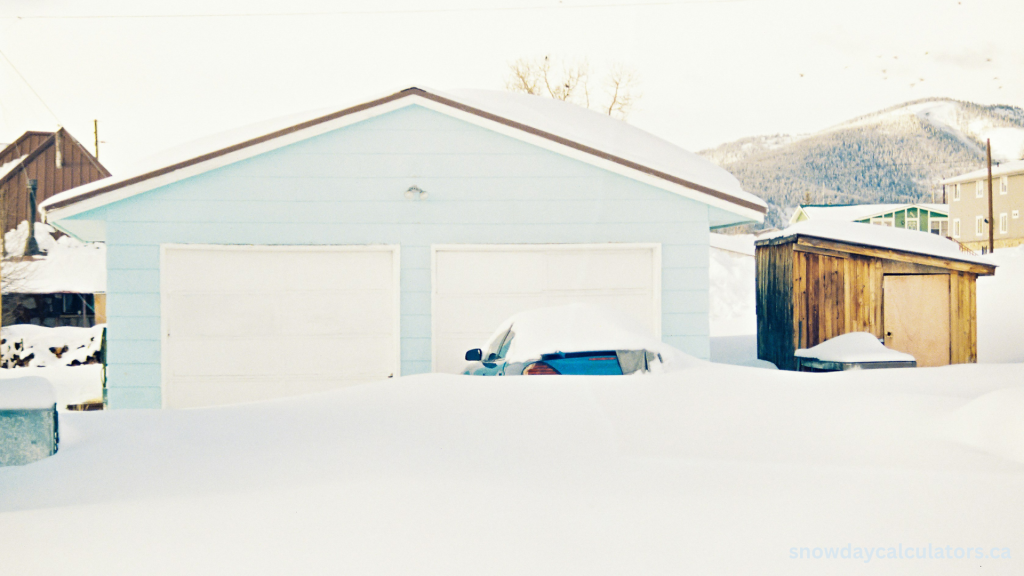
Chances of Snow Day Tomorrow
Your chances of a snow day tomorrow depend on the weather forecast. Heavy snow, ice, or extreme cold can all cause a snow day. Check your local predictor for the latest guess.
What Are the Chances of a Snow Day?
This is a common question for students and parents. Use a snow day predictor or your school’s website to find out. The chance is usually a percentage or a color code.
What Are the Odds of a Snow Day Tomorrow?
The odds of a snow day tomorrow are the same as the chance. It’s a percentage or number that shows how likely it is that school will be closed. Check your local predictor for the latest info.
School Day Predictor
A school day predictor is a tool that guesses if school will be open or closed. It’s just another name for a snow day predictor. Use it to plan your day and know if you need to set your alarm.
Chances of School Being Closed Tomorrow
This is the same as the chance of a snow day. It’s a percentage or number that shows how likely it is that school will be closed. Check your local predictor for the latest info.
Snow Day Near Me
A “snow day near me” tool shows you if there are snow days happening close to your home. It’s like a live map of school closures. You can see if your friends in other towns are off too.
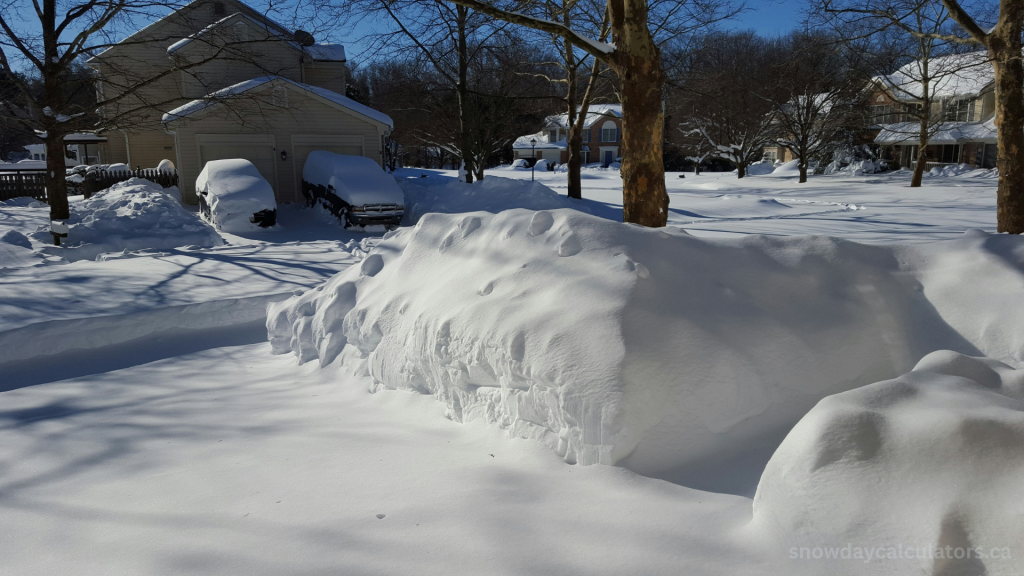
Snow Day Predictor Michigan
If you live in Michigan, use a snow day predictor made for Michigan. These tools know the local weather and school policies. They give you a more accurate guess than a general predictor.
How Much Snow for School to Close
The amount of snow needed to close school depends on where you live. Some places close for just a few inches, others need a lot more. Check your local school’s rules or predictor for details.
Snow Day Probability
Snow day probability is the same as the chance of a snow day. It’s a percentage or number that shows how likely it is that school will be closed. Check your local predictor for the latest info.
Snow Day Calculator Accuweather
Accuweather makes a snow day calculator that uses their own weather data. It’s easy to use and gives you a percentage chance. Just type in your location and see what it says.
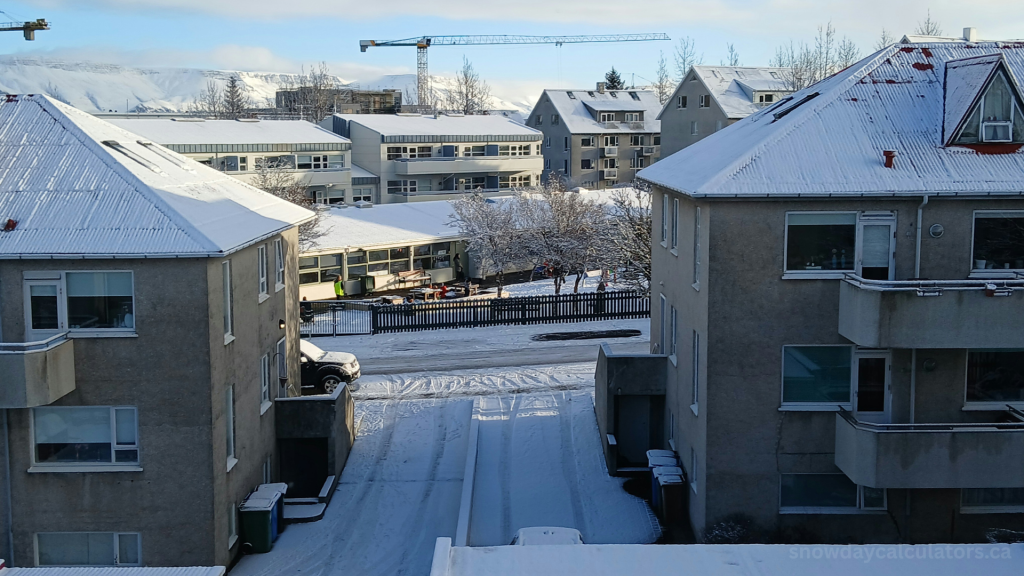
School Bus Cancellation Predictor
A school bus cancellation predictor guesses if school buses will be canceled. Even if school is open, buses might not run if roads are bad. This is important for students who ride the bus.
How Much Snow Is Needed for a Snow Day?
This is a common question, and the answer depends on your location. In some areas, just a few inches of snow is enough to close schools. In others, it takes a foot or more. The best way to know is to check your local school’s rules or use a local snow day predictor.
Are Bus Cancellations Included in Snow Day Predictions?
Sometimes. Some predictors guess if buses will be canceled, even if school is open. This is important if you ride the bus. Always check your school’s website for the final word.
How Accurate Is a Snow Day Predictor?
Snow day predictors are usually pretty good, but they’re not perfect. Weather can change fast, and school decisions often depend on factors that aren’t in the forecast—like the condition of local roads or the availability of snowplows.
In my experience, local predictors are the most accurate. They know your area’s weather patterns and school policies. National predictors are fun for a quick guess, but always check your school’s website for the final word.
What Weather Conditions Usually Cause a Snow Day?
Here are the most common weather conditions that can lead to a snow day:
- Heavy Snow: If it’s hard to clear the roads.
- Ice: Slippery roads and sidewalks.
- Extreme Cold: Too cold for students to wait outside.
- Wind: Blizzard conditions can make travel dangerous.
- Road Closures: If buses can’t get through, schools might close.
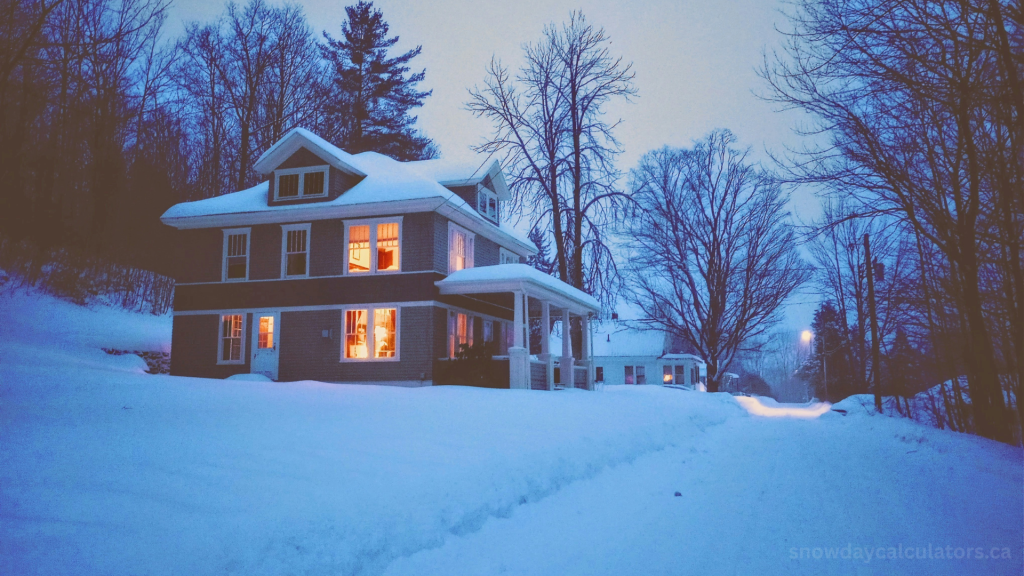
How Do Schools Decide to Close for Snow Days?
Schools look at several factors when deciding to close:
- Snowfall Amount: How much snow is expected?
- Temperature: Is it too cold for students to wait outside?
- Wind: Are blizzard conditions possible?
- Road Conditions: Are roads safe for buses and cars?
- Safety: Can everyone get to school safely?
Each school district has its own rules, so what closes one school might not close another.
Tips for Using Snow Day Predictors
Here are some tips to get the most out of snow day predictors:
- Check More Than One Source: Don’t rely on just one predictor. Use a few to compare.
- Look for Local Predictors: Local tools know your area’s weather and school rules.
- Check Your School’s Website: The final word always comes from your school.
- Use Apps for Quick Updates: Apps can send you alerts so you don’t miss the news.
- Don’t Rely on Just One Guess: Weather can change fast, so check often.
Quick Comparison
| Tool Type | Best For | Accuracy | Updates | Local Rules |
|---|---|---|---|---|
| Local Predictor | Your area | High | Fast | Yes |
| National Predictor | Big picture | Medium | Fast | No |
| School Website | Final word | Highest | Fast | Yes |
Quick Facts
- Most snow day predictors are free
- Local predictors are the most accurate
- Weather can change fast—check often
- Always check your school’s website for the final word
How to Make Your Own Snow Day Predictor
If you’re feeling creative, you can make your own snow day predictor. Here’s how:
- Track Weather Forecasts: Keep an eye on the weather for your area.
- Know Your School’s Rules: Find out how much snow or cold it takes for your school to close.
- Monitor Road Conditions: Check local news or traffic apps for road closures.
- Compare to Past Years: See if your school closed for similar weather in the past.
- Make Your Guess: Use all this info to predict if you’ll have a snow day.
It’s not perfect, but it’s a fun way to learn about weather and your school’s policies.
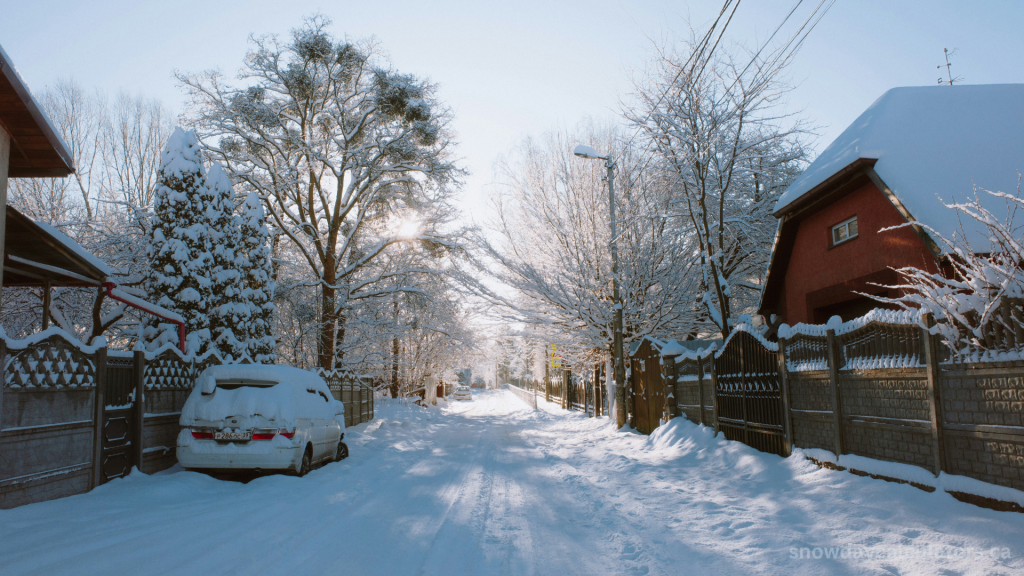
Snow Day Predictor for College
If you’re in college, you can still use a snow day predictor. Many colleges have their own policies for closing due to weather. Check your college’s website or use a local predictor to see if classes will be canceled.
Snow Day Predictor for Extreme Cold
In some areas, extreme cold is enough to close schools. A cold day predictor can help you know if school will be closed because of low temperatures. Check your local predictor or school’s website for details.
Snow Day Predictor for Blizzards
Blizzards—heavy snow with strong winds—are a common cause of snow days. A blizzard predictor can help you know if school will be closed. Check your local predictor or school’s website for the latest info.
Snow Day Predictor for Ice Storms
Ice storms can make roads and sidewalks very slippery. An ice day predictor can help you know if school will be closed. Check your local predictor or school’s website for details.
Snow Day Predictor for Fog
In some areas, thick fog can cause school delays or closures. A fog day predictor can help you know if school will be affected. Check your local predictor or school’s website for the latest info.
Snow Day Predictor for Rain
Heavy rain can sometimes cause school closures, especially if it leads to flooding. A rain day predictor can help you know if school will be closed. Check your local predictor or school’s website for details.
Snow Day Predictor for Wind
Strong winds can make travel dangerous, especially if there’s also snow or ice. A wind day predictor can help you know if school will be closed. Check your local predictor or school’s website for the latest info.
Snow Day Predictor for Safety
Ultimately, school closures are about safety. A safety predictor can help you know if school will be closed. Check your local predictor or school’s website for the latest info.
Snow Day Predictor for Trends
Trend predictors look at patterns over time. They can help you guess if this winter will have more snow days than usual. It’s not a sure thing, but it’s a fun way to make an educated guess.
Snow Day Predictor for Prices
Most snow day predictors are free. Some apps or advanced tools might charge, but the basic ones are usually free.
Snow Day Predictor for the Whole Country
National predictors are fun for a quick guess, but they’re not as accurate as local ones. Use them for a general idea, but always check your school’s website for the final word.
Snow Day Predictor for the World
Global predictors are rare, but they do exist. They’re not very accurate for individual schools, but they’re fun to try if you’re curious about snow days in other countries.
Snow Day Predictor for Historical Data
Some predictors use historical data to make their guesses. This can help you see patterns and predict future snow days. It’s not perfect, but it’s a fun way to learn about weather.
Snow Day Predictor for Different Regions
Snow day predictors are available for many regions, including:
- Ontario: Snow day predictor Ontario, snow day predictor Barrie, snow day predictor Timmins
- Michigan: Snow day predictor Michigan, snow day predictor west Michigan
- Canada: Snow day predictor Canada, snow day predictor Vancouver, snow day predictor Halifax
- United States: Snow day predictor Boston, snow day predictor New York
Each region has its own weather patterns and school rules, so local predictors are the best choice.
Snow Day Predictor for Regions
Each region has its own weather patterns and school rules. A regional predictor can help you know if your school will be closed. Check your local predictor or school’s website for the latest info.
Snow Day Predictor for School Districts
Each school district has its own rules for closing. A district predictor can help you know if your school will be closed. Check your local predictor or school’s website for the latest info.
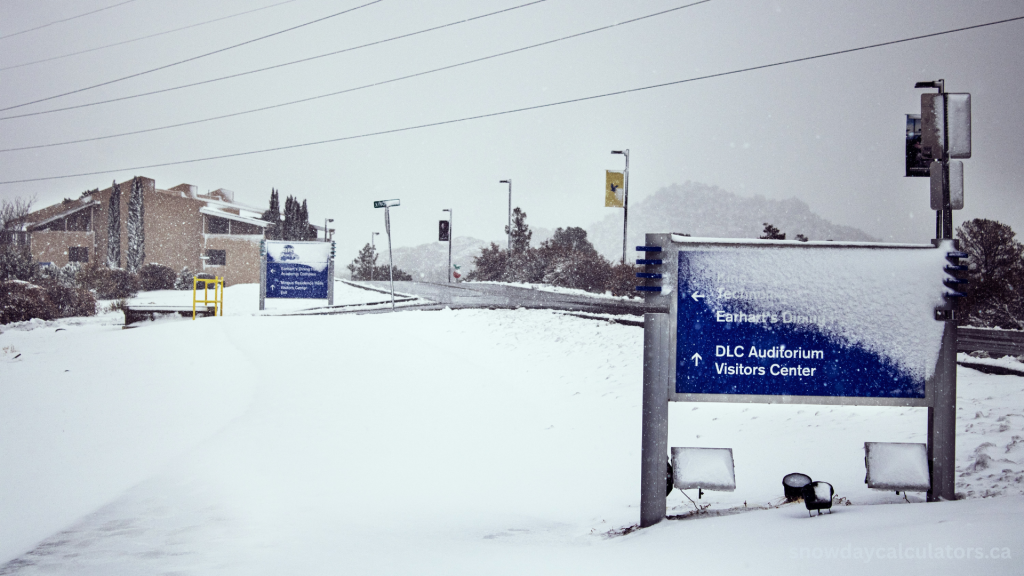
My Personal Snow Day Story
Last winter, I woke up to a blizzard. The snow day predictor said 90% chance, but I still checked my school’s website. Sure enough, school was closed! I spent the day building a snowman and drinking hot chocolate. The predictor was right, but it’s always good to double-check.
Conclusion
A snow day predictor is a handy tool for anyone who wants to know if school will be closed due to bad weather. While no predictor is perfect, they can give you a good idea of what to expect. Always check your school’s website for the final word, and enjoy your snow day if you get one!
